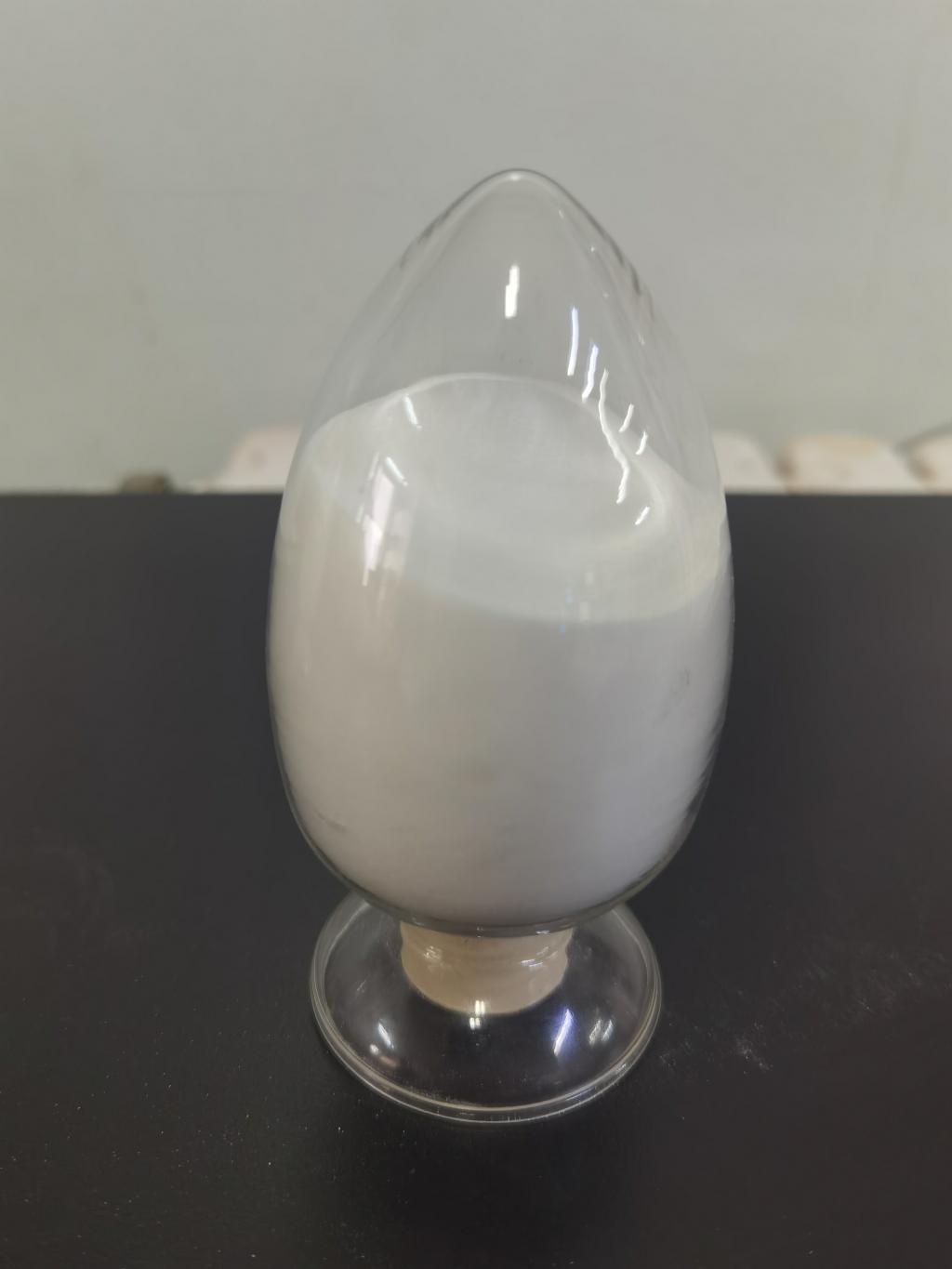Tel:+8618231198596

News
 CONTACT
CONTACT
 CONTACT
CONTACT
- Linkman:Linda Yao
- Tel: +8618231198596
- Email:linda.yao@dcpharma.cn
- Linkman:CHARLES.WANG
- Department:Overseas
- Tel: 0086 0311-85537378 0086 0311-85539701
News
Current Position:
Home >
News
>ε-Polylysine Hydrochloride's Role in Enhancing Quality and Safety in Baked Goods.
ε-Polylysine Hydrochloride's Role in Enhancing Quality and Safety in Baked Goods.
TIME:2023-10-07
The Significance of Quality and Safety in Baked Goods
Quality and safety are paramount in the bakery industry, and they are essential for several reasons:
Consumer Satisfaction: Quality baked goods that meet or exceed consumer expectations lead to greater satisfaction and brand loyalty.
Health and Well-being: Safe baked goods are crucial to prevent foodborne illnesses and protect consumer health.
Shelf Life Extension: Maintaining quality and safety throughout a product's shelf life reduces food waste and ensures that products remain appealing to consumers.
Reputation and Branding: Bakeries that consistently produce high-quality and safe products build strong reputations and strong brands.
Compliance with Regulations: The bakery industry is subject to strict food safety regulations that require adherence to quality and safety standards.
ε-Polylysine Hydrochloride: An Overview
ε-Polylysine hydrochloride is a biopolymer composed of lysine amino acids linked together. It is produced through the fermentation of specific microorganisms, such as Streptomyces albulus, and has been approved for use as a food preservative in many countries, including the United States and Japan. ε-Polylysine hydrochloride offers several unique properties:
Antimicrobial Activity: ε-Polylysine hydrochloride exhibits broad-spectrum antimicrobial activity against a variety of bacteria, including both Gram-positive and Gram-negative species, as well as molds and yeasts.
Natural Origin: It is derived from microbial fermentation, making it a desirable ingredient for clean-label and minimally processed baked goods.
Safety: Extensive research and regulatory approval have confirmed the safety of ε-Polylysine hydrochloride for human consumption when used within specified limits.
Minimal Impact on Sensory Characteristics: When used appropriately, ε-Polylysine hydrochloride has a minimal impact on the taste, texture, and overall quality of baked goods.
Enhancing Quality in Baked Goods
ε-Polylysine hydrochloride plays a significant role in enhancing the quality of baked goods in several ways:
Preservation of Freshness: By inhibiting the growth of spoilage microorganisms, ε-Polylysine hydrochloride helps extend the shelf life of baked goods, allowing them to remain fresh and appealing for longer periods.
Texture Maintenance: Baked goods often undergo textural changes over time due to moisture migration. ε-Polylysine hydrochloride can help preserve the desired texture of products, such as maintaining the crispness of cookies and the softness of bread.
Improved Crumb Structure: In bread and other baked products, ε-Polylysine hydrochloride can enhance crumb structure, leading to improved volume, texture, and overall quality.
Reduction in Staling: Staling, or the loss of moisture and firming of baked goods over time, is a common issue. ε-Polylysine hydrochloride helps reduce the rate of staling, prolonging the freshness of products like bread and cakes.
Enhancing Safety in Baked Goods
Food safety is paramount in the bakery industry, and ε-Polylysine hydrochloride contributes to enhanced safety in baked goods:
Pathogen Control: ε-Polylysine hydrochloride effectively inhibits the growth of pathogenic bacteria such as Salmonella and Listeria, reducing the risk of foodborne illnesses.
Mold and Yeast Inhibition: It helps prevent the growth of molds and yeasts, which can spoil baked goods and lead to health hazards.
Clean-Label Solutions: As a natural antimicrobial, ε-Polylysine hydrochloride is an attractive clean-label alternative to synthetic preservatives, aligning with consumer preferences for minimally processed foods.
Applications in Baked Goods
The bakery industry can leverage ε-Polylysine hydrochloride in various applications to enhance quality and safety:
Bread and Rolls: ε-Polylysine hydrochloride can be added to bread and roll formulations to extend freshness, improve crumb structure, and reduce staling.
Cakes and Pastries: In cakes and pastries, ε-Polylysine hydrochloride can enhance shelf life, maintain moisture, and prevent mold growth.
Biscuits and Cookies: For biscuits and cookies, ε-Polylysine hydrochloride helps preserve crispness and reduce the development of off-flavors.
Tortillas and Wraps: In tortillas and wraps, ε-Polylysine hydrochloride prevents mold growth and extends shelf life, ensuring product safety.
Benefits and Considerations
The use of ε-Polylysine hydrochloride in baked goods offers several benefits, but there are also considerations:
Benefits:
Improved Quality: Baked goods maintain their freshness, texture, and overall quality for longer periods.
Enhanced Safety: ε-Polylysine hydrochloride helps control pathogens, molds, and yeasts, reducing the risk of foodborne illnesses.
Clean-Label Appeal: As a natural antimicrobial, ε-Polylysine hydrochloride aligns with clean-label preferences.
Reduced Food Waste: Longer shelf life minimizes food waste and contributes to sustainability.
Considerations:
Regulatory Compliance: Bakeries must ensure that the use of ε-Polylysine hydrochloride complies with food safety regulations and recommended usage levels established by regulatory authorities.
Consumer Acceptance: Educating consumers about the use of ε-Polylysine hydrochloride in baked goods may be necessary to address potential concerns.
Cost Considerations: The cost of ε-Polylysine hydrochloride should be evaluated in relation to its benefits and the potential for increased shelf life and reduced food waste.
Conclusion
In the bakery industry, ensuring the quality and safety of baked goods is paramount. ε-Polylysine hydrochloride, with its natural origin and broad-spectrum antimicrobial properties, plays a vital role in enhancing both quality and safety. By preserving freshness, maintaining texture, and inhibiting the growth of pathogens, molds, and yeasts, ε-Polylysine hydrochloride contributes to the production of high-quality, safe baked goods that meet consumer expectations and comply with food safety regulations.
As the bakery industry continues to evolve, the adoption of ε-Polylysine hydrochloride in formulations offers a promising solution to address the challenges of quality, safety, and shelf life extension. With ongoing research, responsible utilization, and industry collaboration, ε-Polylysine hydrochloride is poised to play an increasingly significant role in the production of bakery products that meet the demands of today's consumers for fresh, safe, and delicious baked goods.
- Tel:+8618231198596
- Whatsapp:18231198596
- Chat With Skype







